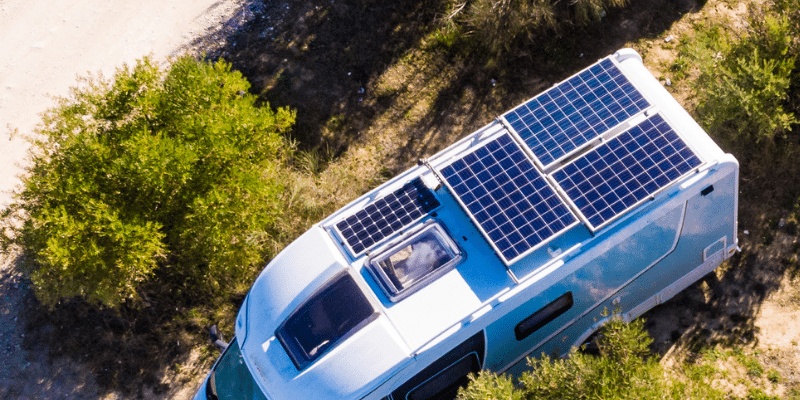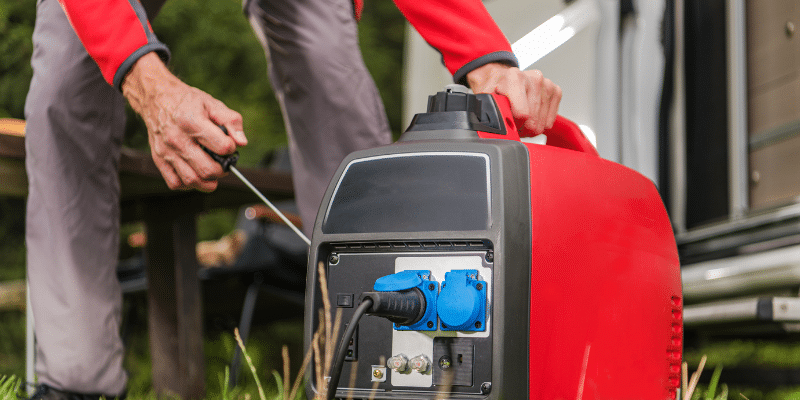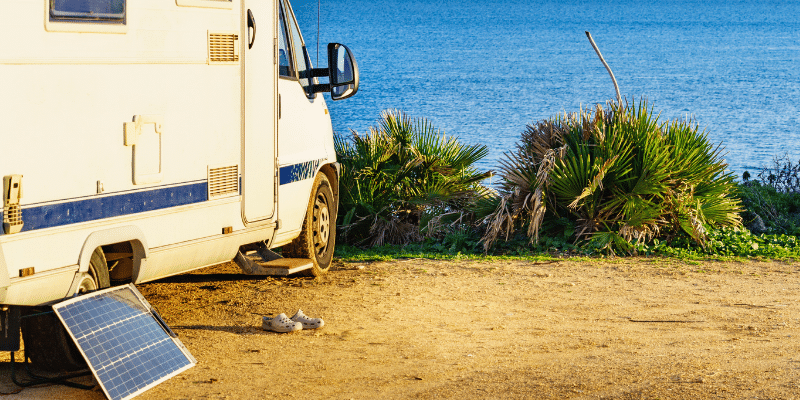For many Australians, there are few greater pleasures in life than the lure of the open road and exploring the rugged splendour of our beautiful country. Whether by caravan, camper van, RV or the good ole faithful tent or swag, camping is an Australian institution that is here to stay. Australia is expansive, with more camping spots spread throughout than you’d be able to explore in a lifetime. Whether it’s in the high country of Victoria, or on an untouched beach tucked away in the southwest of WA, there are endless opportunities to find your own slice of paradise.
However, not all of these camping spots have running water, flushing toilets and hot showers. In fact, many have none of the above! If you, like a growing number of Aussies, are really looking to get away from it all, then the concept of off-grid camping will certainly appeal.
Off-grid camping is generally cheaper, and being self-sufficient opens up a whole world of camping locations without the crowds and noise. ‘Roughing it’ while off-grid camping can be fun, but if you want some of the comforts of home, you will need a source of power for your appliances and devices.
On this page:

Off-Grid Power Options
There are a number of options available for powering your off-grid campsite. Some people opt for traditional generators that run on gas or diesel fuel, while others prefer solar panels and 12V battery banks.
For some people, the decision between these two options is easy – if you want to go green then you’ll be using solar power! However, when comparing solar vs generators for off-grid camping there are pros and cons to each option worth considering.
10 Green Home Improvement Tips that Will Save You Money
Generators for Off-Grid Camping
Traditionally, Australian caravanners have used generators for backup power, or they simply start up their car and charge their van’s batteries from the alternators for energy when they are off the grid. Both of these options, while effective, have their drawbacks. Below we outline the key pros and cons of using a generator.

Pros:
- Reliable power supply (assuming you’ve got fuel)
- Fast charging: If you want to charge your battery quickly, the best way is to run a 240-volt battery charger off the generator’s AC output. This will recharge the battery much faster than solar, while regulating the charge.
- Not dependent on the weather: Probably the biggest advantage of generators vs solar is that they are not dependent on good weather.
- Run appliances directly: A generator can run appliances directly without needing to charge the battery first. In fact, they are better than solar when you’re using them with power-hungry devices, like your air conditioner or coffee machine.
Cons:
- Noise pollution: Most generators are pretty loud and can impact on your enjoyment of nature, as well as disturb other campers or even wildlife in the area. Because of this lots of national parks and public places don’t allow the use of generators, or put strict time restrictions on when they can be used.
- Emissions: generators are also notoriously harmful for the environment, emitting CO, CO², unburnt hydrocarbons and particulate matter. Carbon monoxide and CO emissions from generators also pose a threat to health. Precautions will need to be taken to ensure their safe use, including ventilation, appropriate distancing, and ensuring they are properly grounded and waterproofed.
- Heavy and bulky: Generators are heavier than solar panels, with generators weighing anywhere between 13 – 30kg – before you add fuel. They are also bulkier, taking up more room in your caravan.
- Upfront and ongoing costs: Generators are relatively expensive to buy (and maintain) as well as requiring fuel to operate, making them an ongoing expense rather than a one off cost like solar panels.
Verdict:
While generators are a great option for backup power and powering heavy appliances, they come with their own range of problems that can impact on your camping experience. The noise pollution and emissions from running them constantly can be annoying to other campers in the area, not to mention effecting the environment around you.
Solar Panels for Off-Grid Camping
If you’re looking for an environmentally-friendly and easy way to power your off-grid campsite, then solar energy is a compelling option. Millions of Australians have already installed solar panels on their homes, so it’s not surprising that portable solar panel kits for camping are becoming increasingly popular. Below we cover the key pros and cons for solar powered off-grid camping.
Note: if you want to run appliances, devices and lighting on your campsite using solar, you’ll need a deep cycle battery as it’s not recommended to use your vehicle’s starter battery.

Pros:
- Clean and environmentally-friendly: Solar panels do not produce any harmful emissions, instead converting the sun’s energy into electricity.
- Quiet: As well as being great at generating electricity from sunlight, solar panels are quiet – especially compared to noisy generators!
- Easy to maintain: Solar panels require less maintenance than generators, with no need to regularly change oil or clean out fuel filters.
- No consumables = free energy: Unlike generators, solar panels do not require fuel or oil to generate power. This means that energy is completely free once installed.
- Lightweight: Solar panels are lightweight and easy to transport when compared with generators. While you can buy high-output portable solar kits for camping, they usually only weigh around 15kgs making them super manageable!
Cons:
- Takes longer to charge: One of the biggest drawbacks of solar is that it can take a while to charge your battery unit. In fact, a 100 Watt solar panel that can generate 1 amp of current will take around 5-8 hours of time to charge a 12V battery fully. So, if you’re running appliances with high energy consumption all the time, you might find yourself short on energy.
- Less output in cloudy weather: Unlike generators, solar panels rely on good weather to work their best. Cloudy days will cause problems for even the highest quality solar inverters and batteries – so your electricity supply may not be as reliable when it’s overcast.
- Set-up costs: The initial investment for a solar panel kit can be high, especially once you’ve factored in the panels (or blankets), deep cycle battery, regulator, invertor and any additional accessories like cables and Anderson plugs you may need to get properly “set up”. While these things cost money – once you have it all set up, the power is free.
Verdict:
While solar energy is the best option when it comes to being environmentally-friendly and quiet, it can occasionally lack the power needed to run higher energy consumption appliances like microwaves and electric kettles. Although the initial outlay can be costly, the money you’ll save on fuel and maintenance can quickly make up for it.
Solar Panels vs Generators: Is There a Clear Winner?
Solar panels are great for the environment and campers looking to cut-down on noise pollution and ongoing costs – but they are slow to charge your battery and aren’t guaranteed to have adequate power during prolonged periods of cloudy weather. Generators, on the other hand are a popular option for camping trips that require an extra power boost, but they can be quite noisy and bulky. They’re also not ideal (and sometimes not even permitted) in environmentally sensitive areas or when you want your trip to remain low impact. If you are looking to minimise harm to the environment, then solar is the conscious choice.
Ultimately, there isn’t really one option that trumps the other. Both options effectively offer freedom from the grid. The most important thing to consider when choosing solar or generators for your off-grid campsite is what you’ll be using it for the majority of the time, as well as how much energy each appliance will require at once. If you’re still not sure, it might be worth speaking to a specialist who can help work out what’s best for your trip!
Looking for solar panels in Melbourne for your home? We can help! Receive up to 3 free solar quotes from trusted installers in your local area. Go solar today, start saving tomorrow!












































